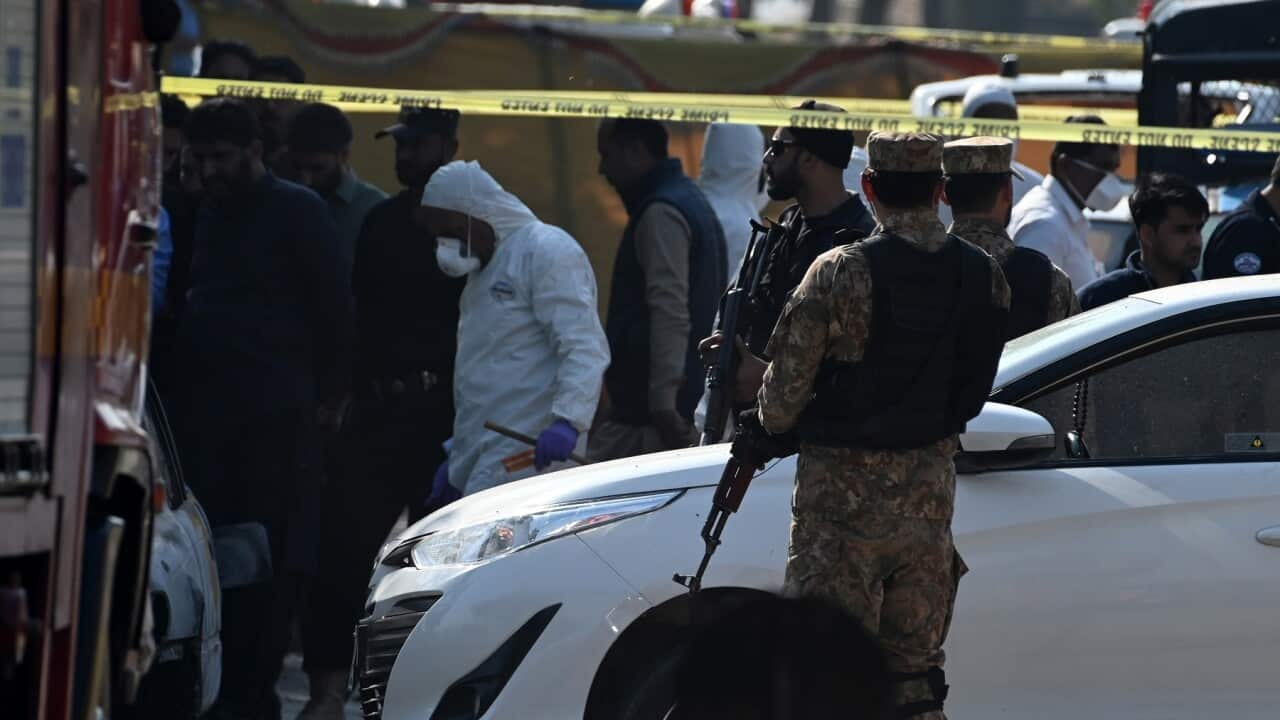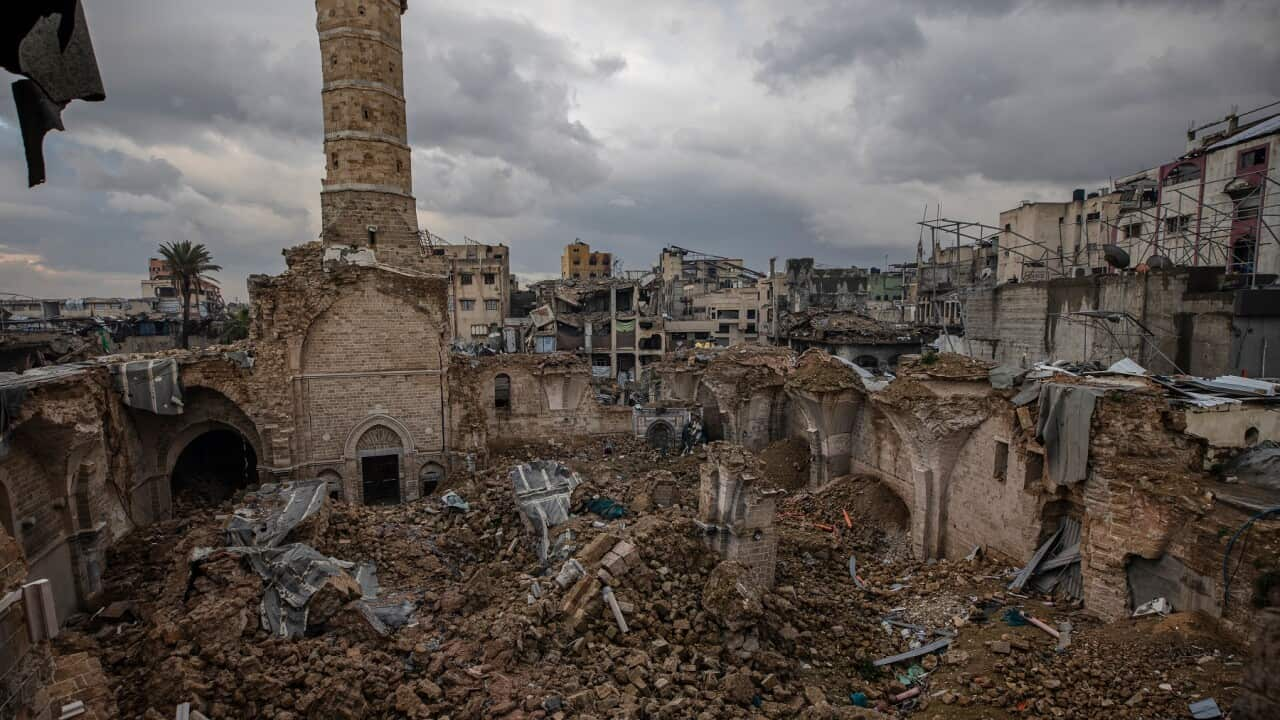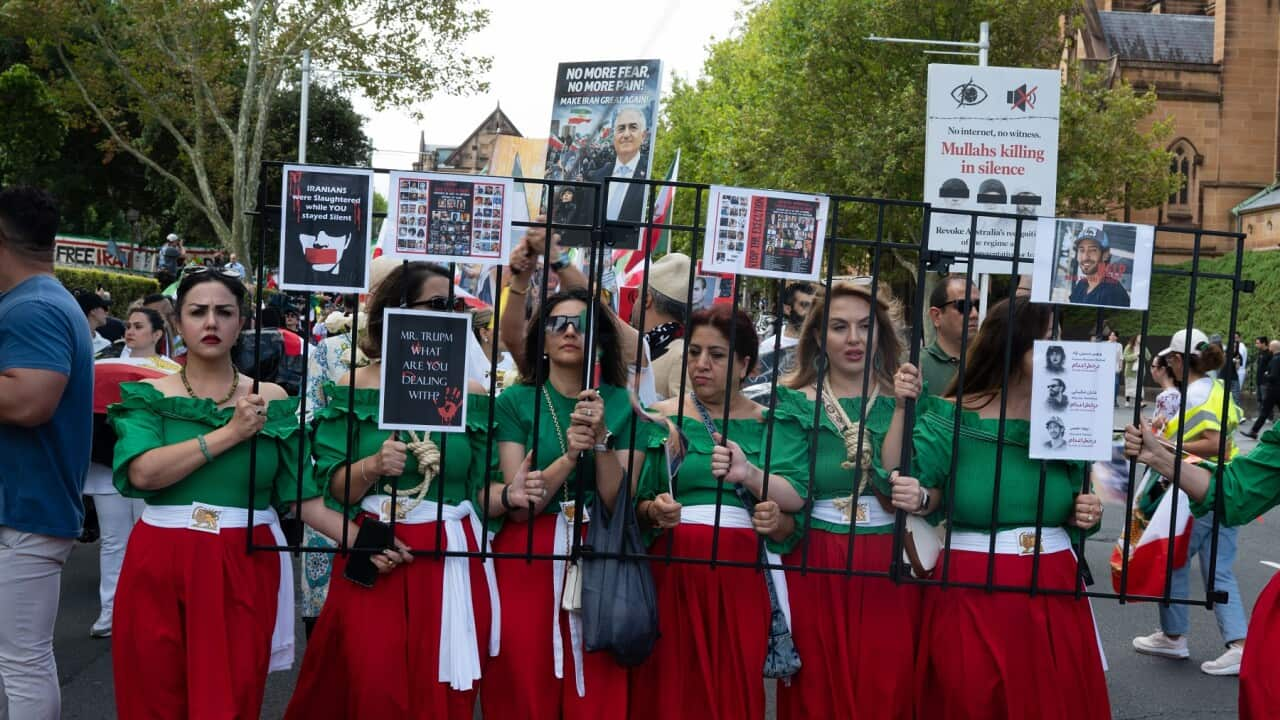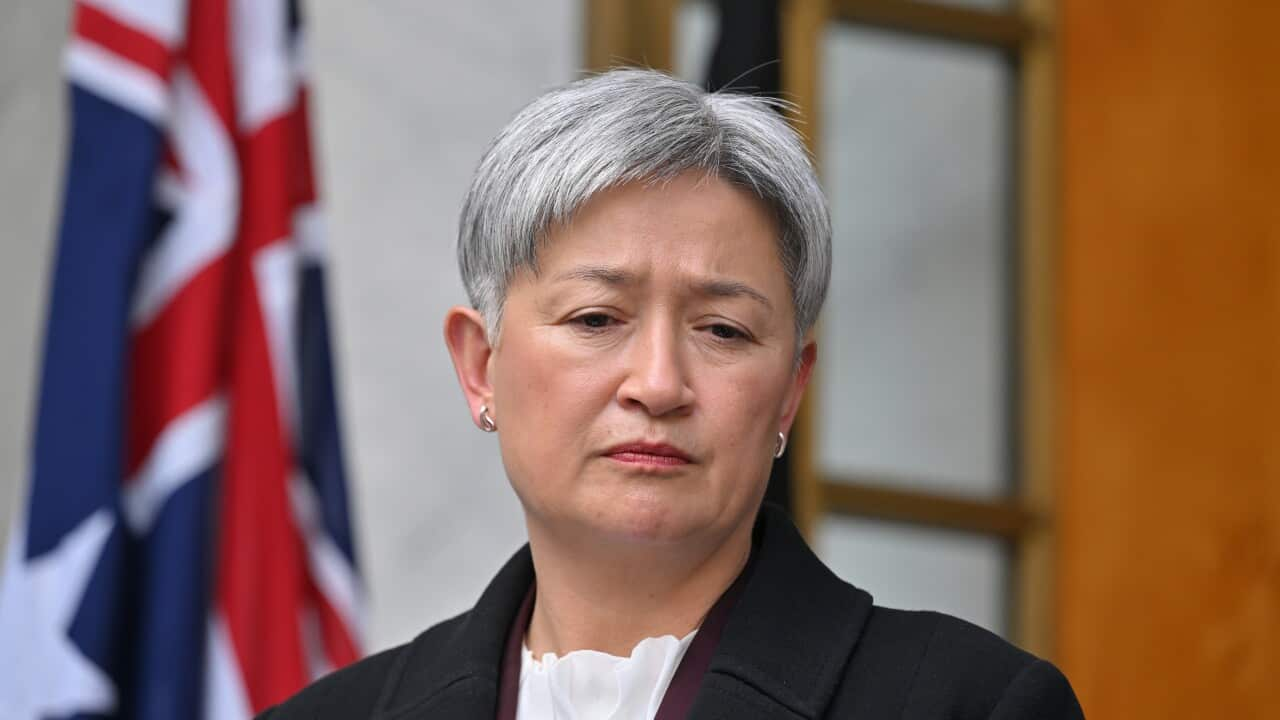Listen to Australian and world news, and follow trending topics with SBS News Podcasts.
TRANSCRIPT:
At least twelve people have been killed and nearly thirty injured after a suicide bomber blew himself up outside a district court just after midday on Tuesday local time.
The blast tore through one of the capital’s busiest legal precincts, a place usually crowded with lawyers, police, and families attending hearings.
Authorities say both police officers and civilians attending hearings were among the victims, with the explosion so powerful it was heard several kilometres away.
Rustam Malik is a lawyer who was inside the complex when the bomb went off.
“It was about half an hour since we parked our vehicles and entered the gate when there was a loud explosion. There was fire everywhere. Body parts were strewn on the ground. There was chaos. It looked like a bomb blast.”
A second eyewitness was lawyer Muhammad Shahzad Butt.
He says he saw the suicide attacker moments before the blast - and that what happened next was like something out of a nightmare.
“All of a sudden, at 12:30 pm, the blast happened. The head of the suicide bomber and parts of his dead body flew into the premises of the court. It was a huge explosion. People started to run. It was like the Day of Judgement.”
By the time the dust settled, a police vehicle was reduced to twisted metal, and nearby motorbikes were in flames.
Ambulances rushed the injured to hospitals as police sealed off the area.
Pakistan’s Interior Minister, Mohsin Naqvi, has confirmed it was a suicide attack, and that the bomber tried to get inside the court before detonating his explosives at the gate.
"Today at 12:29 p.m. there was a suicide attack in Kutcheri and you can see how much damage it has done. So far 12 are dead and 27 are injured. We are treating the injured in hospitals and our teams are there to give them best available facilities. The suspect stood there for 15 minutes, he even tried to enter the court premises but, failing to do so, targeted a police vehicle."
Within hours, the Jamaat-ul-Ahrar, a breakaway faction of the Pakistani Taliban, had claimed responsibility for this, the first major militant strike in Islamabad in nearly a decade.
The Pakistani government has blamed what it calls foreign-backed elements, alleging Indian and Afghan involvement, though these claims have been swiftly rejected by both governments as baseless.
The blast comes amid already strained Pakistan-Afghanistan relations, with recent border clashes killing dozens and peace talks in Istanbul collapsing over Kabul’s refusal to guarantee control of militant groups.
At the United Nations, Secretary-General Antonio Guterres has expressed condolences and condemned the violence, calling for those responsible be held to account.
“The Secretary-General is deeply saddened by the reported suicide attack, and he extends his condolences to the families of the victims and wishes a full recovery to those injured. The Secretary-General condemns acts of violence and terrorism at the strongest terms. He reiterates that all perpetrators of terrorism must be held accountable, and he calls for a full investigation."
That condemnation has been echoed across the international community, with rights groups warning that Pakistan could be on the brink of another wave of militant violence, and diplomats urging restraint between Islamabad, Kabul and New Delhi.
Inside Pakistan, the mood is sombre and anxious.
Hospitals remain crowded with victims, and security has been tightened around government buildings and courts nationwide.
For many in Islamabad, this attack cuts deeper, not just for the loss of life, but because it shatters a fragile sense of safety that the capital had built in recent years.
Meanwhile, forensic teams continue to gather evidence at the site, and officials say D-N-A tests are under way to identify the attacker.
A formal investigation report is expected within days.













